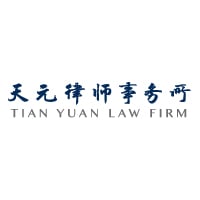

General counsel | United Energy Group



Leslie Zhang
General counsel | United Energy Group
How do you approach managing legal aspects during periods of instability or crises to ensure the organisation’s resilience?
In periods of instability or crises, maintaining legal clarity while aligning strategic goals with the organisation’s risk management framework is crucial. My approach is grounded in three key pillars: preparation, communication, and flexibility.
Preparation involves establishing contingency plans and regularly updating crisis response strategies. For instance, during recent regulatory changes in China’s energy sector, we proactively refined our compliance protocols to address emerging risks, ensuring our legal team is well-versed in local regulatory frameworks.
Effective communication with key stakeholders is essential during crises. We ensure that the leadership team and other business units are informed of potential legal implications, facilitating a coordinated response. The legal department acts as a strategic partner, providing real-time advice that supports operational continuity.
Flexibility is vital, as crises often introduce regulatory changes, market volatility, and operational disruptions. For instance, when faced with sudden shifts in international trade regulations, we swiftly adapted our legal strategies to ensure compliance while maintaining alignment with UEG’s long-term objectives, enabling us to successfully manage contract renegotiations and safeguard supply chain integrity.
Given that UEG’s current main assets are based in South Asia and MENA areas, we also factor in the associated risks when making investment decisions and implement various precautionary measures.
What are the main projects that you have been involved in recently?
Recently, I have been actively involved in several key projects that exemplify UEG’s commitment to sustainable energy development. A significant focus has been on contract management and negotiation for new energy projects in Pakistan and China, including a solar energy initiative requiring complex coordination across multiple jurisdictions.
Additionally, I’ve overseen legal matters related to mergers and acquisitions that align with UEG’s expansion strategy in the oil and gas sector. A notable transaction involved acquiring a strategic stake in a renewable energy firm, entailing extensive due diligence, regulatory approvals, and structuring agreements to mitigate risks while enabling growth.
My recent work also includes managing legal aspects related to renewable energy projects in Eastern Europe and hydrogen opportunity developments in partnership with local stakeholders. Furthermore, my team provides legal support for new developments in the MENA region, ensuring compliance with diverse regulatory environments.
In the realm of international arbitration, I have been actively involved in litigation cases, including the enforcement of several hundred million dollars in arbitral awards globally, underscoring our commitment to protecting UEG’s interests in international markets.
What are some of the main trends impacting the industry sector you work in China?
One significant trend in China’s energy sector is the shift towards renewable energy, driven by aggressive government policies aimed at reducing carbon emissions. For UEG, this transition presents both opportunities and challenges, as we need to diversify our portfolio while optimizing existing oil and gas operations.
Another critical trend is the increased regulatory scrutiny on environmental impacts, which necessitates a comprehensive re-evaluation of operational strategies. For instance, we are investing in technologies that enhance energy efficiency and reduce emissions, aligning our practices with stricter environmental regulations.
Furthermore, the growing emphasis on ESG compliance reflects a global shift towards sustainability. UEG is actively enhancing our ESG initiatives to meet these expectations while addressing overseas energy disputes arising from the changing regulatory landscape. Energy transition risks are also paramount as we navigate the complexities of aligning our business strategies with evolving market demands.
How do you build relationships with other teams in the company?
Building relationships with other teams is essential for fostering collaboration and ensuring that the legal department functions as a proactive partner. I prioritize open communication, ensuring the legal team is approachable and integrated into business decision-making processes.
We conduct regular meetings with various departments to understand their goals and challenges, providing legal insights that align with their objectives. For example, I recently collaborated with the finance team on a major acquisition, ensuring the deal was structured to mitigate risks while enhancing shareholder value.
Cross-functional collaboration is key to navigating complex projects. Whether it’s working with the operations team on compliance matters or engaging with the marketing team on regulatory issues related to new energy products, we emphasize trust and demonstrate the legal department’s value as a strategic partner.
I stress the importance of engaging with other teams from the inception of any project, including M&A, financing, or contract negotiations. Our goal is to provide commercially workable solutions, assisting teams in accomplishing their tasks while ensuring effective risk control. Regular reminders to other teams help maintain focus and alignment throughout project lifecycles, such as in our ongoing solar project in Pakistan.
What is a topic (business-related or otherwise) that you are passionate about, and why?
I am particularly passionate about sustainable energy development. As vice president and chief legal officer of United Energy Group, I’ve witnessed firsthand how the energy sector is evolving towards more sustainable practices. The transition to cleaner energy sources is critical for the environment and essential for the long-term viability of energy companies.
I am deeply invested in how the legal framework can support this transition, ensuring compliance with evolving environmental regulations while facilitating innovation. At UEG, we are committed to finding the right balance between traditional energy practices and embracing renewable technologies, which is crucial for shaping a sustainable future.
This passion drives me to stay engaged in energy policy discussions and support initiatives that promote environmental stewardship. Additionally, I have a keen interest in business development, as it enables us to innovate and expand our impact in the renewable energy landscape.
Do you use any ‘legal tech’ products, and if so, for which areas of your work do you find them most useful?
Yes, at United Energy Group, we have increasingly adopted legal tech solutions to enhance our operational efficiency. One of the most valuable tools we utilize is contract management software. Given the complexity of our energy projects that span multiple jurisdictions, efficiently managing contracts is critical. These tools streamline contract drafting, track revisions, and ensure compliance with various regulatory standards across countries.
We also employ e-discovery tools for handling large-scale disputes or compliance investigations. For instance, when addressing regulatory inquiries related to our operations in different geographies, e-discovery technology allows us to swiftly analyze vast amounts of information, improving our response time and effectiveness.
Moreover, case management systems are indispensable for tracking ongoing legal disputes, ensuring that all documentation is organized, and deadlines are met. These systems enhance collaboration within the legal team and across departments, providing a central repository for critical information.
Additionally, we leverage AI tools provided by our IT department to assist the legal team’s work, improving efficiency and reducing the risk of human error. This technology is invaluable in managing the complexities of the energy sector’s regulatory environment with greater accuracy.